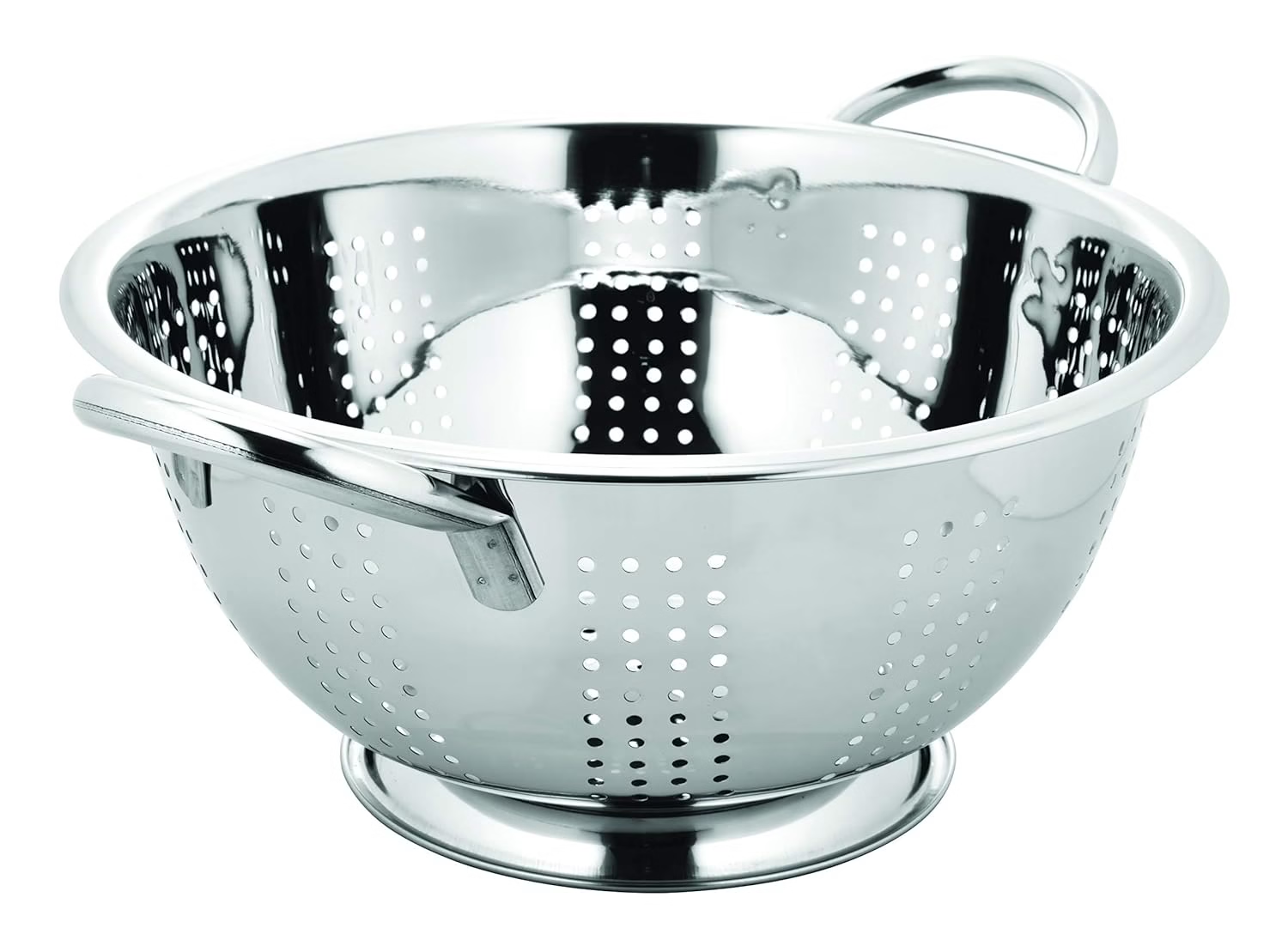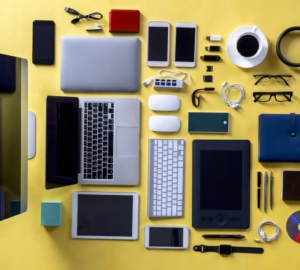In any busy Kenyan kitchen, from preparing a hearty plate of spaghetti with minji (peas) stew to washing a fresh bounty of sukuma wiki, a colander is an unsung hero. This essential kitchen tool, with its perforated surface, is designed to efficiently drain liquids from solids, making various cooking tasks faster, cleaner, and more convenient. While seemingly simple, choosing the right colander can significantly impact your cooking efficiency and the longevity of your kitchenware.
At Retail Place, we believe in equipping you with the knowledge to select the best tools for your culinary adventures. This comprehensive guide will delve into the different types of colanders available in Kenya, their key features, common uses, and where to find the perfect one for your Nairobi kitchen.
The Indispensable Role of a Colander in Your Kitchen
A colander is primarily used for separating solids from liquids. Its versatility makes it a frequent visitor to the sink:
- Draining Pasta & Noodles: The most classic use, ensuring your spaghetti or macaroni is perfectly drained before adding sauce.
- Rinsing Fruits & Vegetables: Essential for washing fresh produce like grapes, berries, kunde, or managu to remove dirt and pesticides.
- Draining Canned Goods: Quickly removes excess liquid from canned beans, chickpeas, or tuna.
- Washing Grains: Ideal for rinsing rice, quinoa, or lentils before cooking. Fine mesh strainers (often called sieves in Kenya) are even better for very small grains.
- Draining Cooked Meats: Removing excess fat or liquid from browned mince or cooked ground beef.
- Steaming (with the right setup): Some colanders can be used as a steamer insert over a pot of boiling water.
Types of Colanders: Materials and Designs in Kenya
Colanders come in various materials and designs, each offering different benefits:
Stainless Steel Colanders
- Pros: Highly durable, resistant to rust, corrosion, and staining. Can handle hot liquids without warping or melting. Easy to clean, often dishwasher-safe, and very hygienic as they don’t absorb odors. They offer a sleek, professional look.
- Cons: Can be heavier than plastic, and typically more expensive.
- Best For: Heavy-duty kitchen use, draining hot pasta, rinsing large quantities of vegetables. Considered the best overall option for longevity and versatility. You’ll find a wide range of stainless steel colanders from brands like Marvel, Rossetti, and generic options in Nairobi.
Plastic Colanders
- Pros: Lightweight, inexpensive, and come in a variety of vibrant colors. They are gentle on non-stick cookware if used carefully.
- Cons: Can stain, retain odors, and may degrade, warp, or even melt when exposed to very hot liquids (like freshly drained pasta from the stove). Less durable than metal.
- Best For: Light tasks like rinsing cold fruits and vegetables, draining canned goods, or for budget-conscious buyers. Brands like Limon and Kenpoly offer plastic colanders in Kenya.
Silicone Colanders (Collapsible)
- Pros: Extremely space-saving due to their collapsible design, ideal for smaller kitchens or limited storage. Heat-resistant, non-stick, and easy to clean. Often have comfortable handles.
- Cons: May not be as sturdy as metal for very heavy items. Can sometimes retain odors over time if not cleaned properly.
- Best For: Small kitchens, camping, RVs, or for occasional use where compact storage is a priority. You can find generic collapsible silicone colanders on online marketplaces.
Mesh Strainers/Sieves
- Description: While not strictly “colanders” (which usually have larger, punched holes), fine mesh strainers are often used for similar purposes and are crucial for certain tasks.
- Pros: Ideal for draining very small grains like quinoa or rice, sifting flour, straining sauces, or making smooth purees.
- Cons: Can be harder to clean (food gets stuck in the mesh). Less robust for heavy items and prone to bending.
- Best For: Fine straining tasks where a colander’s holes are too large. Often sold in sets of various sizes.
Key Features to Look for in Your Colander
Size & Capacity
- Choose a size that matches your cooking needs. A 2-3 litre (8-12 cup) capacity is good for most families, sufficient for a standard pot of pasta or a large batch of vegetables. Larger sizes (5 litres+) are great for entertaining or bulk cooking.
Hole Size & Pattern
- Ensure the holes are large enough for efficient draining but small enough to prevent your food from slipping through. A good balance allows for quick liquid removal without losing ingredients.
Stability
- Base: Look for a colander with a sturdy, raised base or feet to keep it elevated above the sink, preventing water from re-contaminating your food.
- Handles: Comfortable, sturdy handles (preferably riveted on metal colanders) are essential for safe and easy handling, especially when draining hot, heavy foods. Some colanders come with expandable handles that rest over the sink for hands-free draining.
Ease of Cleaning
- Smooth, non-porous materials like stainless steel are easiest to clean. Look for designs without too many intricate crevices where food can get trapped. Dishwasher-safe models are a bonus.
Versatility (Multi-purpose)
- Consider if the colander can double as a fruit bowl or a mixing bowl. Some nesting sets come with a colander that fits inside a larger bowl.
Where to Find the Best Colanders in Nairobi
You’ll find a diverse range of colanders at various retailers across Nairobi and beyond:
- Major Supermarkets: Carrefour, Naivas, Quickmart, and Chandarana Foodplus are excellent places to start. They offer a wide selection of plastic, basic stainless steel, and sometimes silicone colanders from various brands.
- Department Stores & Appliance Retailers: Hotpoint Appliances, Anko Retail, Vituzote.com, and kitchen specialty stores (often in major malls like Sarit Centre, Junction Mall) will likely stock higher-quality stainless steel colanders and more innovative designs.
- Online Marketplaces: Jumia Kenya and Avechi provide extensive options, allowing you to browse different brands, materials, compare prices, and read customer reviews from other Kenyan buyers. Kilimall is also a good online source.
- Homeware Shops: Smaller, independent homeware shops might carry unique or imported designs.
Pricing in Nairobi: Prices for colanders vary widely based on material, size, and brand:
- Basic Plastic Colanders: KSh 200 – KSh 800
- Stainless Steel Colanders: KSh 800 – KSh 3,000+ (depending on size and quality)
- Collapsible Silicone Colanders: KSh 500 – KSh 1,500
A good colander is a small but mighty investment that enhances your kitchen’s functionality and makes meal preparation a breeze. By considering the material, features, and your specific needs, you can choose the perfect colander that will faithfully serve your Kenyan kitchen for years to come.









